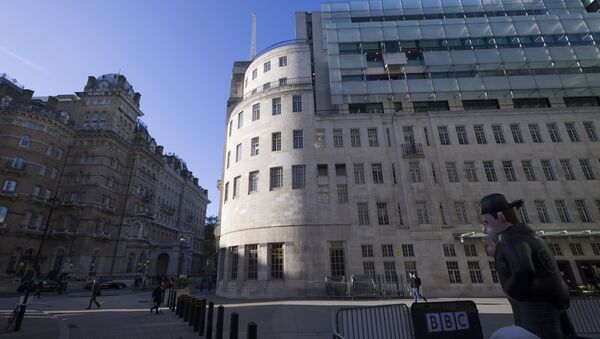A top British minister hinted on Wednesday that the BBC licence fee could be scrapped during the next review of its royal charter, as talks with the state broadcaster draw near.
“The licence fee will remain in place this charter period which ends in December 2027, however we must all be open-minded about the future of the licence fee beyond this point", culture minister Nicky Morgan said, Reuters reported.
“These are not easy issues and they will require some honest and at times difficult conversations,” she added.
“As we move into an increasingly digital age ... the time has come to think carefully about how we make sure the TV licence fee remains relevant,” Morgan said.
She noted that less young people were using the BBC’s radio, TV and online output, and “therefore we do need to look at this funding model".
The possibility of the licence fee for 100-year-old BBC ending comes as the broadcaster is under pressure for overspending on salaries and allegations of political bias.
An eight-week public consultation began on Wednesday regarding non-payment of the fee being decriminalised.
The BBC has warned that decriminalisation will cost millions as a result of less people opting to pay the fee.
“If there are changes, they must be fair to law-abiding licence fee payers and delivered in a way that doesn’t fundamentally undermine the BBC’s ability to deliver the services they love”, the broadcaster said.
Prime Minister Boris Johnson raised the licence issue just a few days before December’s general election which he went on to win with a large majority.
“I don’t think anyone should interpret today’s announcement or discussion about the licence fee model as any kind of attack on the BBC”, Morgan said, describing the broadcaster as a beacon of freedom and light.
Her comments follow recent tension between the government and political journalists after press were barred from a government briefing in Downing Street on Monday, prompting others to walk out in protest.
The BBC has faced criticism in recent years for awarding large salaries to its major personalities, paying women less than men, and maintaining a "London-centric bias".
It has also faced accusations of political bias from the government, the opposition Labour Party, and Scottish nationalists.
The most recent wave of accusations came during December 2019 when the BBC's political journalist Laura Kuenssberg retweeted claims that a Labour activist had punched a Tory advisor outside Leeds hospital
According to a YouGov study during the election, trust in the BBC fell dramatically over the course of the campaign.
The poll showed that less than half believe BBC news journalists are honest and impartial.
Anyone who uses a television or watches the BBC’s streaming and online iPlayer must pay the £154.50 ($198) charge or face a £1,000 fine.
Failure to pay the fine can lead to a criminal conviction.
Critics have claimed that the service is now outdated in an era dominated by subscription services, alternative news, and accessible online streaming.


